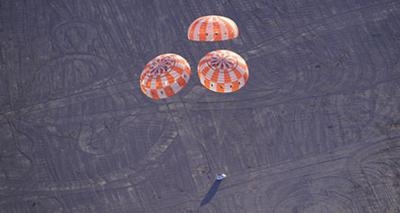Sat, Dec 22, 2012
Advertisement
More News
 Aero-News: Quote of the Day (04.17.24)
Aero-News: Quote of the Day (04.17.24)
"Sometimes, growth makes it easy to miss the little things, and today's "little guy" is smarting more than ever just looking at the price tags of "cheap" aircraft. Poberezny, seein>[...]
 ANN's Daily Aero-Linx (04.17.24)
ANN's Daily Aero-Linx (04.17.24)
Aero Linx: Space Medicine Association (SMA) The Space Medicine Association of the Aerospace Medical Association is organized exclusively for charitable, educational, and scientific>[...]
 Airborne-Flight Training 04.17.24: Feds Need Controllers, Spirit Delay, Redbird
Airborne-Flight Training 04.17.24: Feds Need Controllers, Spirit Delay, Redbird
Also: Martha King Scholarship, Montaer Grows, Textron Updates Pistons, FlySto The FAA is hiring thousands of air traffic controllers, but the window to apply will only be open for >[...]
 Airborne 04.16.24: RV Update, Affordable Flying Expo, Diamond Lil
Airborne 04.16.24: RV Update, Affordable Flying Expo, Diamond Lil
Also: B-29 Superfortress Reunion, FAA Wants Controllers, Spirit Airlines Pulls Back, Gogo Galileo Van's Aircraft posted a short video recapping the goings-on around their reorganiz>[...]
 Airborne 04.11.24: SnF24!, King's 50th, Top Rudder, Aileronics
Airborne 04.11.24: SnF24!, King's 50th, Top Rudder, Aileronics
Also: Flight Club, Jet Shades, MyGoFlight’s FlightFlix Acquisition FIFTY YEARS! What a milestone for the aviation world’s master aero-education duo! John, Martha, along>[...]
blog comments powered by Disqus




